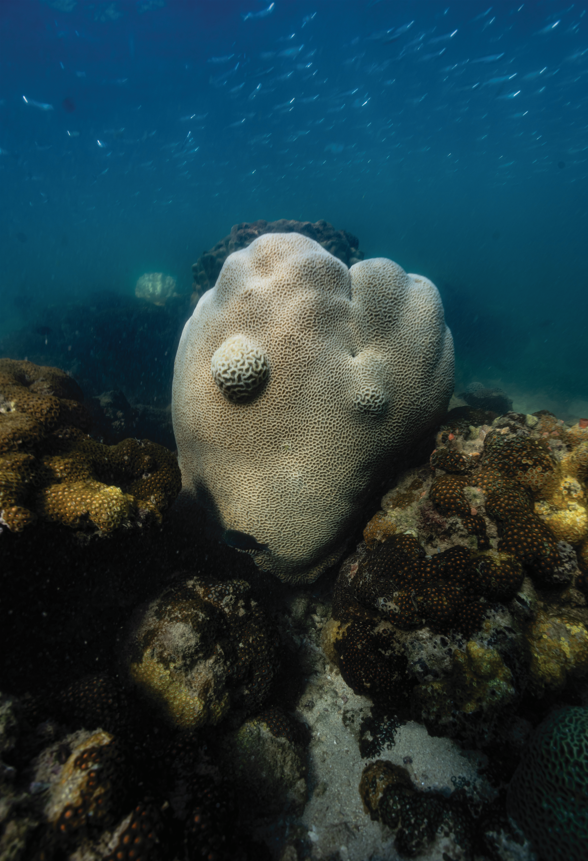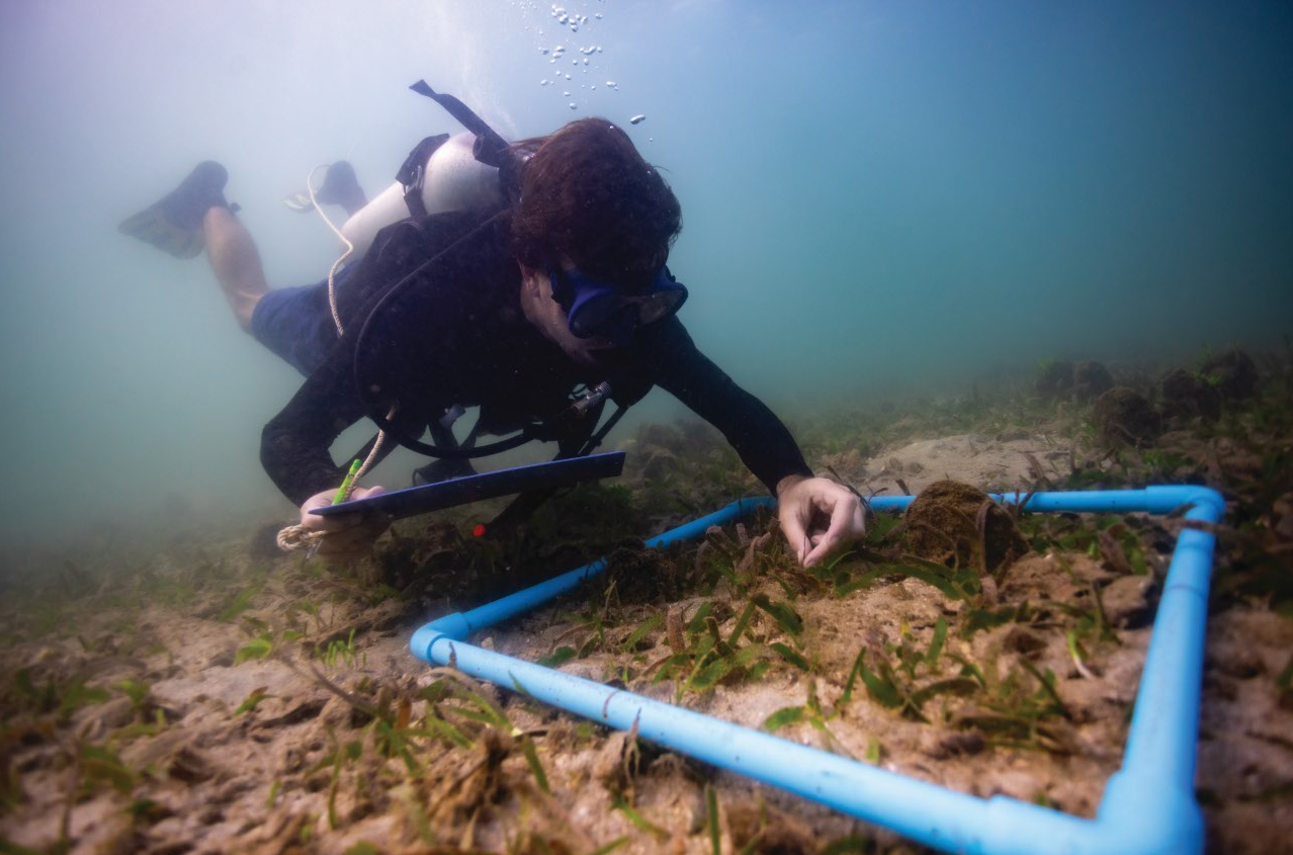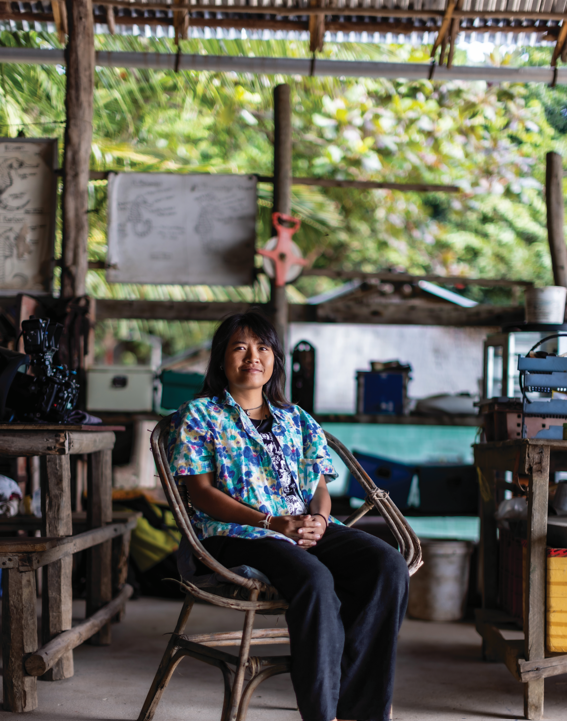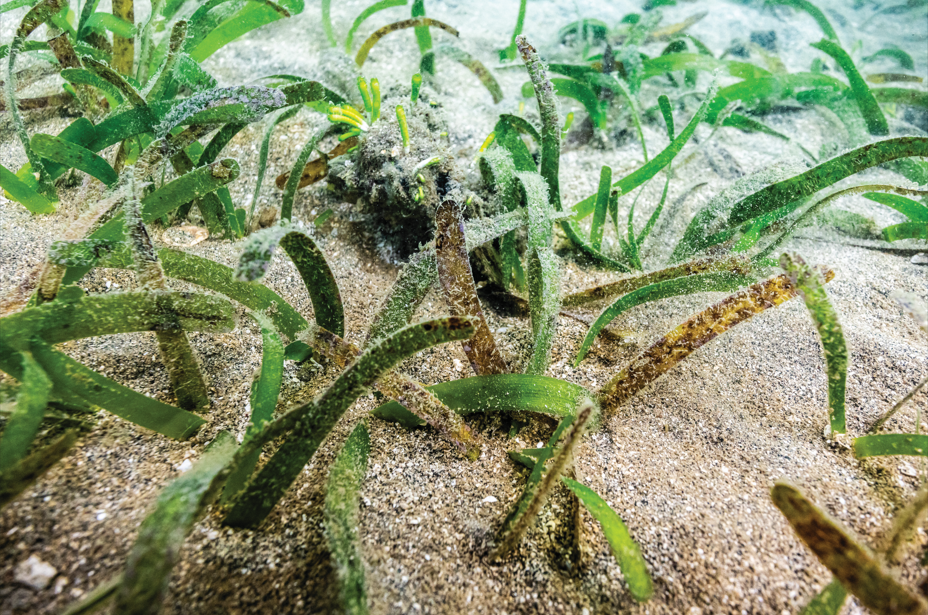Cambodia’s Kep Archipelago was once on the brink of ecological collapse, but the sustained efforts of one organisation have revived its waters. Now, with the support of Rolex and Mission Blue, a critically endangered species has a fighting chance of survival among the islands.
Much has been said — but even less done — about the environmental crisis threatening our planet. Climate change, unsustainable practices, pollution, and biodiversity loss are pushing Earth’s ecosystems to their limits. But all is not lost.
With support from Rolex Perpetual Planet Initiative partner Mission Blue, a local conservation organisation is working tirelessly to bring the ocean’s largest vegetarian mammal, the dugong, back to restored seagrass meadows in Cambodian waters. Years of industrial fishing and bottom-trawling have devastated vast expanses of seagrass and coral reefs, along with the rich marine life that depended on them. Seagrass, which forms the foundation of multiple ecosystems, is also a powerful tool in the fight against climate change, capable of sequestering more carbon than any terrestrial forest.
Fortunately, due to the work of the Marine Conservation Cambodia (MCC), which was founded in 2008 by former English policeman Paul Ferber, artificial reefs have been constructed in the Kep Archipelago to help replenish the ecosystem. Within years, wildlife like Irrawaddy dolphins and green turtles began to return.
Heartened by the MCC’s success, the Cambodian government later declared the country’s second Marine Fisheries Management Area, where 11,600 hectares of ocean around the Kep Archipelago, including 12 islands, have been dedicated to sustainable fishing practices that both protect marine life and enhance local livelihoods.
With life thriving amid the artificial reefs, MCC Executive Director Thap began to wonder if it might be possible to bring back the dugong, which had not been seen in Cambodia’s waters for many years. To boost the project’s success, she reached out to Mission Blue to help extend and amplify the project’s success. In 2019, the Kep Archipelago became a Hope Spot, and by 2022, 1,000 hectares of seagrass was replanted, leading to an extraordinary result: a dugong and its calf spotted in the waters of the archipelago — the first in many years. “It just appeared 300 metres from our island,” recalls Thap, “It almost made me cry. We spent hours watching it. I can’t describe the feeling, but it showed us that what we were doing was right.”
(Related: Sailing Towards Greatness)
Thanks to the recovering seagrass meadows, dugong sightings have become more frequent, and the increase in artificial reefs has also boosted local fishermen’s catches. Still, Thap plans to install 5,000 more along the Cambodian coast over the next five and a half years. “It’s going to change the whole Cambodian coastal province,” she says, “the potential for restoration and returning wildlife is enormous.” With the support and media visibility offered by Rolex and Mission Blue, she is spreading awareness of her work and its implications not just for the archipelago, or even Cambodia, but the wider world, as Thap emphasises: “This is not just a national project, it is a worldwide one.”






 THE HEALTH OF THE CORAL REEF FOUND AROUND THE KEP ARCHIPELAGO WAS DECLINING RAPIDLY BEFORE MARINE CONSERVATION CAMBODIA WAS ESTABLISHED THERE IN 2013 TO PROTECT ITS DIVERSE WATERS.
THE HEALTH OF THE CORAL REEF FOUND AROUND THE KEP ARCHIPELAGO WAS DECLINING RAPIDLY BEFORE MARINE CONSERVATION CAMBODIA WAS ESTABLISHED THERE IN 2013 TO PROTECT ITS DIVERSE WATERS.
 MARINE CONSERVATION CAMBODIA’S ISLAND MANAGER TANGUY FRENEAT USING A QUADRAT TO SURVEY THE FLOOR OF THE SEAGRASS MEADOW IN THE KEP ARCHIPELAGO.
MARINE CONSERVATION CAMBODIA’S ISLAND MANAGER TANGUY FRENEAT USING A QUADRAT TO SURVEY THE FLOOR OF THE SEAGRASS MEADOW IN THE KEP ARCHIPELAGO.
 RACHANA THAP IS THE EXECUTIVE DIRECTOR OF MARINE CONSERVATION CAMBODIA (MCC) AND A MISSION BLUE HOPE SPOT CHAMPION
RACHANA THAP IS THE EXECUTIVE DIRECTOR OF MARINE CONSERVATION CAMBODIA (MCC) AND A MISSION BLUE HOPE SPOT CHAMPION
 CAMBODIA’S SEAGRASS MEADOWS ARE AMONG THE LARGEST REMAINING IN SOUTH EAST ASIA. THIS SEAGRASS FORMS THE BASIS OF AN ECOSYSTEM THAT SUPPORTS HUNDREDS OF SPECIES AND IS CAPABLE OF SEQUESTERING MORE CARBON THAN ANY TERRESTRIAL FOREST SYSTEM.
CAMBODIA’S SEAGRASS MEADOWS ARE AMONG THE LARGEST REMAINING IN SOUTH EAST ASIA. THIS SEAGRASS FORMS THE BASIS OF AN ECOSYSTEM THAT SUPPORTS HUNDREDS OF SPECIES AND IS CAPABLE OF SEQUESTERING MORE CARBON THAN ANY TERRESTRIAL FOREST SYSTEM.




 Back
Back
